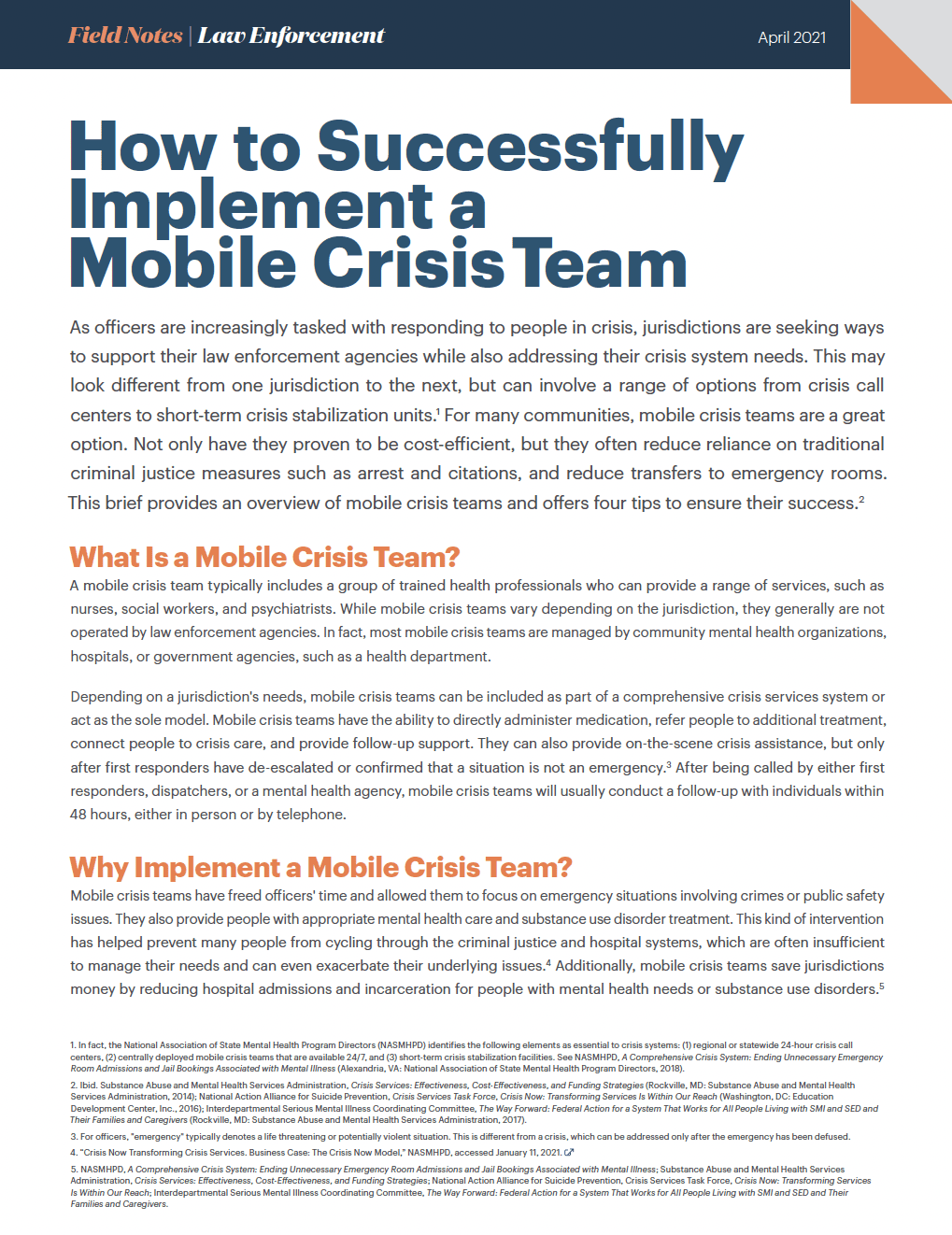How to Successfully Implement a Mobile Crisis Team
How to Successfully Implement a Mobile Crisis Team
As officers are increasingly tasked with responding to people in crisis, jurisdictions are seeking ways to support their law enforcement agencies while also addressing their crisis system needs. For many communities, mobile crisis teams--trained health professionals who can provide on-the-scene crisis assistance--are a great option. These responders often reduce reliance on traditional criminal justice measures such as arrest and citations and reduce transfers to emergency rooms. This brief provides an overview of mobile crisis teams and offers four tips to ensure their success.
Project Credits
Writing: Demetrius Thomas, CSG Justice Center
Research: Demetrius Thomas, CSG Justice Center
Editing: Darby Baham, Emily Morgan, CSG Justice Center
Design: Michael Bierman
Public Affairs: Ruvi Lopez, CSG Justice Center












